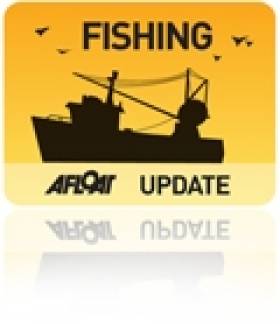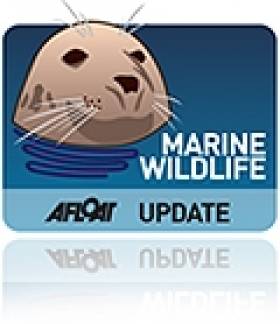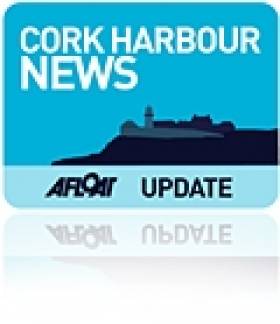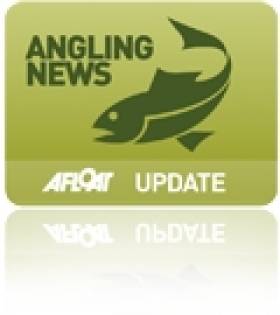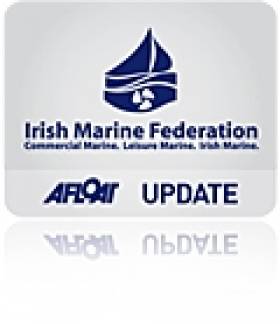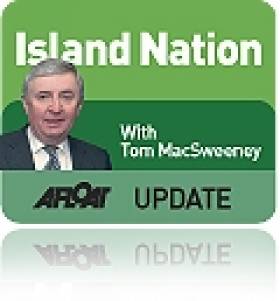Displaying items by tag: Industry
Summit Says It Will Wake Up the Sailing Industry
#sailingindustry – The 13th International Sailing Summit (ISS), taking place on 17 November at METS in Amsterdam, will prove revolutionary for the industry by demonstrating that to succeed in a global market companies must diversify and innovate, say organisers. 'Waking up the sailing industry – how sailing needs to modernise, diversify and develop to attract and retain participants' has been announced by British Sailing, an association of the British Marine Federation (BMF), as the theme of the 2014 Summit.
This worldwide forum, bringing together the best in the industry, aims to drive change and promote sailing on a global scale. Broken-down into three sessions, each will address a need for modernisation:
"Diversification"
Speakers will identify the future target audiences which have evolved from today's global community , including amongst others Molly Winans, Spinsheet Magazine on "Changing Your Game Plan to Welcome Diverse Customers"
"Participation"
A unique chance to hear how experts within and outside of sailing have successfully driven participation in their sport. This will include observations from Terry Greenwood, British Cycling on "Learning from Another Industry – Growing Participation in Cycling"
"Innovation"
Speakers will demonstrate how and why modernisation and creativity is central to future prosperity for the industry. This will include a great insight from Philippe Fourrier and Philippe Bru, Ilago Event, on an incredibly popular & growing event "Defi Wind & Defi Kite"
The annual ISS has proven itself a prominent event for the forerunners of the sailing industry. After last year's Summit between 90-100% of attendees anticipated their return or endorsement of future ISS's*. In consequence, the 13th ISS is an event not to be missed to ensure your business is part of its future.
As Fiona Pankhurst, President of the British Marine Federation and Head of Corporate Marketing & PR at Raymarine enthuses "The International Sailing Summit brings together some of the world's leading lights with the experience, ideas and innovations required to help sailing develop and grow. We will be hearing from other sports about how they have faced and overcome challenges in order to grow, and will be learning about new technologies to encourage participation. For any company involved in any aspect of sailing, this conference is vital as part of your company's development, to see how you can grow your market place and to start METS energised with new ideas and solutions from the exciting panel of presenters and high profile after-dinner speakers. It's a not to be missed opportunity to benefit your business."
Strong Debate Over Proposals for Fishing-Free Zones in Strangford Lough
#FISHING - Proposals to close substantial areas of Strangford Lough to fishing vessels have been met with strong criticism by Northern Ireland's commercial fishermen.
In a recent letter to the News Letter, Paul Leenan writes asking Fisheries Minister Michelle O'Neill to clarify the government's position following a complaint to the European Commission by the Ulster Wildlife Trust regarding the protection of horse mussel reefs in the lough.
While recognising the importance of the lough's marine ecosystem, Leenan writes: "The notion that substantial areas of the lough could be closed to fishing vessels is of serious concern to fishermen, at a time of great economic difficulty.
"Any hasty action could put livelihoods at risk and threaten the viability of the whole fishing industry here."
In response, the Ulster Wildlife Trust claims that "the management of certain aspects of the fauna and flora within the lough has caused... much concern over the past two decades."
Joe Furphy of the trust writes: "If we are to secure a truly sustainable future for the lough, its environment and diverse wildlife, upon which sustainable fisheries rely, then we need to ensure that adequate ‘non-disturbance zones’ are put in place."
'Toxic Maltesers' To Tackle Scourge of Zebra Mussels
A UK-based manufactuer of pesticides has developed a so-called 'toxic malteser' to help tackle the scourge of invasive zebra mussels.
The razor-edged mussels have no natural predators in UK and Irish waters so spread rapidly and wreak havoc on water treatment plants and other industrial facilities, from oil rigs to ship hulls, fish farms and power stations.
But Cambridge firm Biobullets claims its pellet-sized toxin - which is deadly to zebra mussels but harmless to other marine wildlife - is the solution to the problem.
Aside from their own environmental benefits, the pellets also help avoid the old method of removing mussels by dousing them in chlorine, which is toxic in high doses.
Public Consultation on Cork Harbour's Future
A public consultation on the future of Cork Harbour is open until 15 July.
Copies of the 300-page Cork Harbour Study are currently available at Cork County Council offices and online at www.corkcoco.ie, The Southern Star reports.
The study outlines possibilities for the long-term future of the coastline in and around the harbour, including but not limited to the development of disused or under-used areas, and sustainable patterns of settlement and industry.
Ideas the report puts forward for public debate include a new marina for Cobh, more shoreline pedestrian and cycleways, a new container terminal at Ringaskiddy and initiatives for marine-related employment.
"A balance between the development and amenity roles of Cork Harbour is only likely to be maintained if there is public support for this," said outgoing Cork Mayor Kevin Murphy. "Greater use and better public access to its amenities and recreational facilities will make this more likely."
Irish Bass Group Chair Gives Praise to 'Wolf of the Sea'
The chairman of the Irish Bass Group gave his praise to the fish described as the 'wolf of the sea' at a recent angling awards day.
John Quinlan told his audience at the Irish Specimen Fish Committee awards that Ireland has "something truly unique" in a marine fish that is reserved for recreational angling.
He also noted that "in spite of 21 years of bass protection, we have never felt secure enough to build the type of industry that this unique opportunity should justify."
Quinlan explained how bass play "a vital role" in the biodiversity of our inland waters, highlighting the interdependence between bass and sea birds.
“There are still magic days to be had bass fishing," he said, adding his belief that "anglers have a right to be involved in the management of our bass stocks".
He continued: "We have looked after them very well over the last 21 years and earned the right to be involved in any decisions about how they should be managed in the future. If we are to be successful we need to be taken more seriously by our Government."
Quinlan pointed to the potential benefits of angling tourism, an area that "has been lacking for far too long".
“The French call bass ‘loupe de mer’ or ‘the wolf of the sea’," he added. "These beautiful fish have hunted in our waters for centuries and I hope they continue to do so for many years to come.”
The Irish Times has more on the story HERE.
European Commission Penalise Spanish for Over-fishing
In a move to protect dwindling fish stocks, the European Commission recently took decisive action by significantly reducing Spain's mackerel quotas over the next few years as a result of over-fishing. This over-fishing of mackerel by the Spanish has been of major concern to the Irish fishing industry and was brought to the attention of the Commission by the Sea-Fisheries Protection Authority (SFPA) and other bodies.
Spanish fishermen landed almost twice as much mackerel in 2010 from the Cantabrian Sea, in the southern part of the Bay of Biscay, as they were permitted. Through their investigations, the European Commission discovered that the mackerel catch exceeded Spain's quota in the year 2010 by 19,621 tonnes. The European Commission has now passed a regulation reducing Spain's future quotas to account for the excess catches. Spain is obliged, in the period between 2011 and 2015, to return twice the amount of mackerel wrongfully caught.
In order to help combat over-fishing the SFPA operates a round the clock monitoring and surveillance programme to ensure the effective control of fish catches and landings. To promote a culture of compliance with National and EU legislation, landings by Irish, EU and Third Country vessels are inspected by the SFPA in Irish ports. Sea-Fisheries Protection Officers engage in a range of at-sea inspection programmes including both inshore and offshore patrols in conjunction with the Naval Service and Joint inspection patrols with other Member States operating in Irish waters and in those of other Member States.
The SFPA will work with Member States and with the Community Fisheries Control Agency (CFCA) based in Vigo, Spain, when a specific control and inspection programme for pelagic fisheries in Western Waters of the North East Atlantic is established - this is expected to be adopted in the near future. This will allow for the co-ordination of joint control, inspection and surveillance activities by Member States for these pelagic fisheries.
Peter Whelan, Chairman of the SFPA said: "The recent decision by the EU to impose sanctions on Spain for over-fishing and to protect the valuable mackerel fishery is significant. There is a need for all Member States to work together and to comply with the Common Fisheries Policy's rules in order to ensure the sustainable development of fisheries. The role of the SFPA supports profitable, sustainable, managed fisheries at a time when the fishing industry faces many challenges. Effective monitoring and control systems safe-guards the good reputation of Irish food producers in the international marketplace and protects Irish taxpayer from the threat of large fines being imposed when non-compliances with the Common Fisheries Policy are encountered. The SFPA will continue with our aim of working with other Member States to promote a uniform standard of monitoring, control and surveillance."
Marine Leisure Conference Aims to Combat Downturn
Over 120 marine trade and leisure companies from Ireland and Wales are coming together in Dun Laoghaire this week to examine ways to combat the current economic downturn on both sides of the Irish Sea.
Speakers at the conference at the Royal Marine Hotel are drawn from Industry representative organisations, tourism bodies, marine leisure companies, business development specialists, economists and irish-sea.org will provide insights and share knowledge on how to survive the downturn and emerge leaner and stronger when the recovery arrives.
The conference will also provide an industry wide networking opportunity for companies from Ireland and Wales to share experiences and develop business links across the Irish Sea.
Irish-sea.org is an Ireland/Wales Interreg IVA Programme to develop the Irish Sea into a marine leisure centre of excellence.
The programme provides help and support to the sector on both sides of the Irish Sea through marketing, business and vocational training and assisting in the acquisition of research data.
An Irish Maritime Foundation
I wonder whether there might be interest in forming an Irish Maritime Foundation?
I raise the question having discussed the possibility with those who run the UK Maritime Foundation and whose views about the sea about the sea impressed me when I met them in London. The Foundation traces its history back to 1981 when shipowners, senior retired naval officers and people involved in the financial industry reacted to changes in British Government policy that were regarded as failing to protect the importance of the UK maritime industry. It is a registered charity with the purpose of promoting and raising interest in the maritime sector amongst the public, the media and Parliament. To do so it is involved in assisting development of maritime education, training and research.
The British are a magnanimous people in my view. It was an honour to accept the Desmond Wettern Award from the Foundation. Desmond Wettern was a distinguished UK maritime journalist for over 30 years and the awards were established in his name. This year the Society for Nautical Research joined the awards project.
In responding I used one of my favourite descriptions - "the Family of the Sea," which I have used on radio. It drew a lot of interest from those present. I believe there is a "family of the sea" which spans oceans and seas, linking those who appreciate the sea as essential to human survival.
"Everyone who has an interest in the sea would recognise that there are and will continue to be, increasing pressures on its use and on the exploitation of its finite resources, but also a number of opportunities," according to Rear Admiral Christopher Perry, Chairman of the UK Marine Management Organisation. Those views and others I discussed with some of those amongst the 200 attending the function, who came from various parts of the world. Professor Richard Harding of the Society for Nautical Research which is marking its centenary, expressed this opinion: "There is a disturbing sense of sea-blindness in the British Government, amongst the general public at large and in the media."
There is certainly sea-blindness in our Government and in much of the media, though I am hopeful that there is growing awareness of the importance of the marine sector amongst the general public. If Ireland had an organisation like the Maritime Foundation, I would be very pleased.
• This article is reprinted by permission of the EVENING ECHO newspaper, Cork, where Tom MacSweeney writes maritime columns twice weekly. Evening Echo website: www.eecho.ie
Port of Belfast
Port of Belfast
The Port of Belfast is Northern Ireland's principal maritime gateway, serving the Northern Ireland economy and increasingly that of the Republic of Ireland. About 60% of Northern Ireland's seaborne trade and 20% of the entire island's is handled by the Port which receives over 6,000 vessels each year.
The Port is also a major centre of industry and commerce - its Harbour Estate is home to some of Northern Ireland's most important urban regeneration projects and it is the region's leading logistics and distribution hub.
With 1.2 million passengers and half a million freight units annually, Belfast is Ireland's busiest ferry port. It is also the island's leading dry bulk port, dominating the market with regard to imports of grain and animal feeds, coal, fertilisers and cement, and exports of scrap and aggregates. Over 95% of Northern Ireland's petroleum and oil products are also handled at the Port.
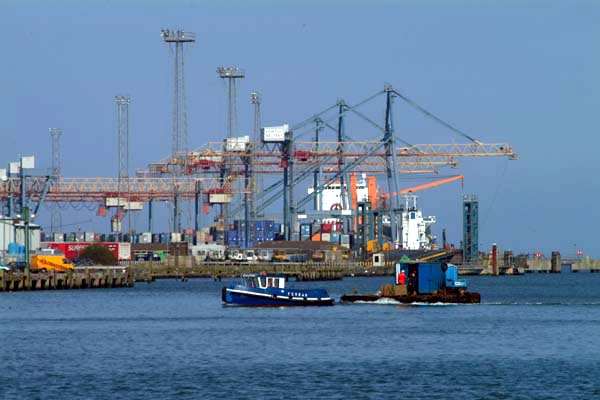
History of the Port
The origins of the port in Belfast can be traced back to 1613, when, during the reign of James I, the town was incorporated as a borough by royal charter, with provision for the establishment of a wharf or quay. As a result, a quay was constructed at the confluence of the Rivers Fearset (Farset) and Lagan and the development of the Port of Belfast began.
Records show that by 1663 there were 29 vessels owned in the town with a total tonnage of 1,100 tonnes. Trade continued to expand throughout the century, to the extent that the original quay was enlarged, to accommodate the increasing number of ships.
By the early eighteenth century the town had replaced Carrickfergus as the most important port in Ulster and additional accommodation was considered necessary. A number of privately-owned wharves were subsequently constructed on reclaimed land. Throughout the century trade continued to expand as Belfast assumed a greater role in the trading activities of the country as a whole. In 1785 the Irish Parliament passed an act to deal with the town’s burgeoning port. As a result, a new body was constituted: The Corporation for Preserving and Improving the Port and Harbour of Belfast, commonly called “the Ballast Board”.
Although at this point the Port was well established it remained disadvantaged by the natural restrictions of shallow water, bends in the channel approach and inadequate quays. These problems, together with an increasing volume of trade, led to a new government act of 1837. This reconstituted the Board and gave it powers to improve the port, through the formation of a new channel. Initial work on straightening the river commenced in 1839 and by 1841 the first bend had been eliminated. The creation of what was to become the Victoria Channel had begun.
In 1847 the Belfast Harbour Act repealed previous acts and led to the formation of the Belfast Harbour Commissioners. This new body, with much wider powers, completed the second stage of the new channel two years later. From that time the Commissioners have developed and improved the Port, reclaiming land to accommodate new quays, new trades and changes in shipping and cargo-handling technology. The efficient, modern port of today is evidence of the foresight and commitment of successive generations of Harbour Commissioners.
Port of Belfast, Harbour Office, Corporation Square, Belfast, Northern Ireland BT1 3AL. Tel: 028 9055 4422
Commercial Contacts – Email: [email protected] • Tel: 028 9055 4422 • Fax: 028 9055 4420
Marine Contacts – Email: [email protected] • Tel: 028 9055 4422 • Fax: 028 9055 3017
Estate Contacts – Email: [email protected] • Tel: 028 9055 4422 • Fax: 028 9055 4411
Corporate Contacts – Email: [email protected] • Tel: 028 9055 4422 • Fax: 028 9055 4420
Human Resources – Email: [email protected] • Tel: 028 9055 4422 • Fax: 028 9055 4420
Harbour Police – Email: [email protected] • Tel: 028 9055 3000 • Fax: 028 9055 3001
Harbour Safety – Email: [email protected] • Tel: 028 9055 4422 • Fax: 028 9055 3020
Calls within the Belfast Harbour Police telephone system may be monitored or recorded



























